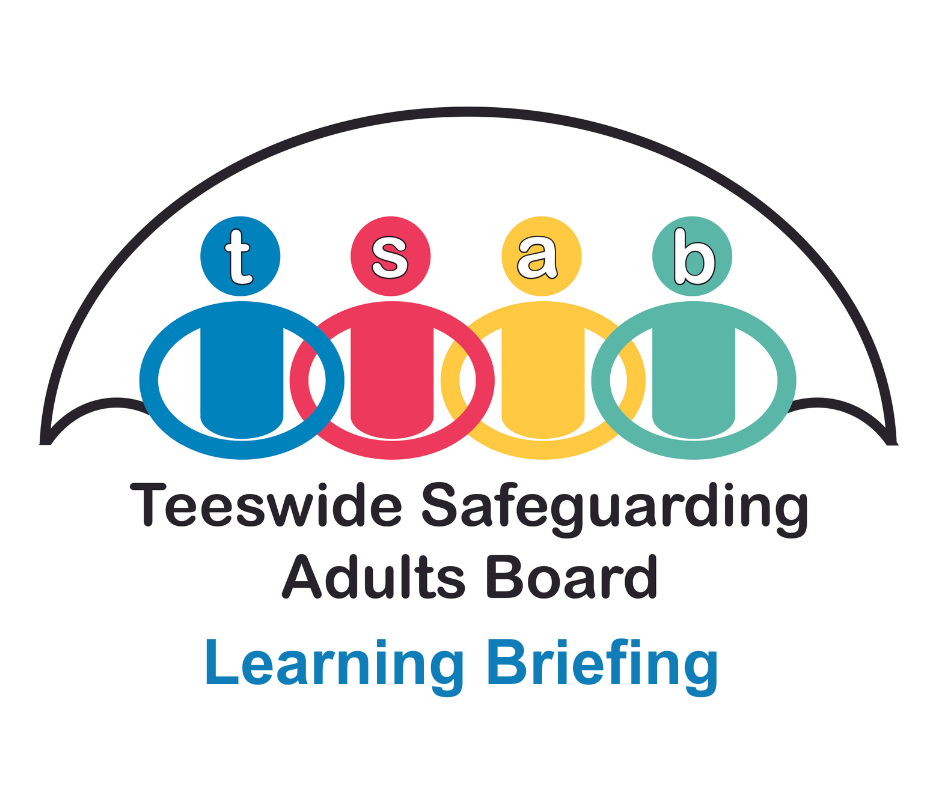
1. Background
Stephen was a 56 year old man with learning disabilities who had cancer. He was a tenant in shared supported living accommodation and received support from three care agencies. Stephen was a fun and very sociable man who loved buses and trains and liked to be out and about. He couldn’t read or write but he was able to communicate to those who knew him and liked to make jokes.
The review highlighted some weaknesses in services’ understanding of how the Mental Capacity Act should be used to make everyday decisions on behalf of adults who are unable to make their own decisions. This learning briefing aims to provide information and support for service providers, managers and front line care staff.
2. Theme 1: The Mental Capacity Act applies to providers
Providers working with Stephen saw mental capacity assessments and Best Interests decisions as the responsibility of local authorities and statutory health providers. The Mental Capacity Act applies to everyone, including providers. Providers need to ensure that staff are clear that they are responsible for assessing capacity to make every day decisions and for making best interests’ decisions where people they care for are unable to make decisions for themselves. Staff should be provided with regular training on how to do this in the context of realistic practice situations and have access to advice from staff with greater expertise. It is important to record capacity assessments and best interests’ decisions in care records. For minor decisions, a brief note is fine. For important decisions, a more detailed record is needed.
3. Theme 2: Deciding not to allow a person to return to their home
Stephen did not return home when he was discharged from hospital because of concerns that he would pose a risk of infecting other tenants and care staff with Covid-19. All decisions on behalf of adults who lack capacity to make the decision themselves are Best Interests decisions. Best Interests decisions must consider the person’s views and rights and consult all those involved, including family, to weigh up what the right decision is for that individual. Providers must also consider the human rights of all residents and their tenancy rights and should seek legal advice before making a decision as a landlord to refuse to allow a person to return to their home.
4. Theme 3: Being clear about who should make decisions
Some decisions are made by organisations or professionals e.g. What accommodation to offer someone, what care to commission, what medication should be prescribed. These decisions are made under legal frameworks such as the Care Act or professional duties such as duty of care. Other decisions are made by adults for themselves or are best interests’ decisions under the Mental Capacity Act where an adult lacks capacity to make them e.g. Where to live, whether to accept or refuse medication. Decisions must not be driven by expediency, or made arbitrarily and opportunistically. Staff need to understand, refer to and record the legal framework decisions are made under and need the training and support to do this effectively.
5. Theme 4: Human rights and proportionality
The Supported Living provider recognised that the Right to Life (Article 2) of other residents was engaged by the possibility of catching Covid from Stephen if he returned home. However, Stephen’s Right to respect for his Home (Article 8) was also engaged. In other aspects of Stephen’s story, human rights were also important, particularly his own Right to Life (Article 2) in decisions about shielding and medical care and Right to respect for his family life (Article 8) in the importance of consulting his family in decisions made on his behalf in his best interests.
Human rights are frequently engaged in issues that arise in the decisions made by social care providers and care staff. Staff need to be able to think about the human rights of people they support and make decisions by weighing up competing human rights to decide whether a decision is proportionate.
How decisions are made, who by and the reasons for them, including competing human rights, should be recorded clearly. This helps providers to demonstrate that they understand and are applying the law.
6. What to do now
- Reflect on how the above themes link with your direct practice with adults, their families and other services.
- Think about what changes you can make to your practice in similar cases.
- Share within your team and explore any training needs you may have.
7. What to do next
Check out this information and share with your team:
- Guidance on assessing capacity:
- Capacity Guide – Guidance for clinicians and social care professionals on the assessment of capacity
- Essex Chambers – Mental Capacity Guidance Note: Assessment and Recording of Capacity
- Guidance on making best interests decisions:
- British Institute for Human Rights practitioners’ guides page
- The British Institute of Human Rights
- The British Institute of Human Rights – know your human rights
- TSAB Mental Capacity Act (MCA) Guidance
- Consider your team’s training needs and access appropriate training resources Including the full course directory
Published: November 2022